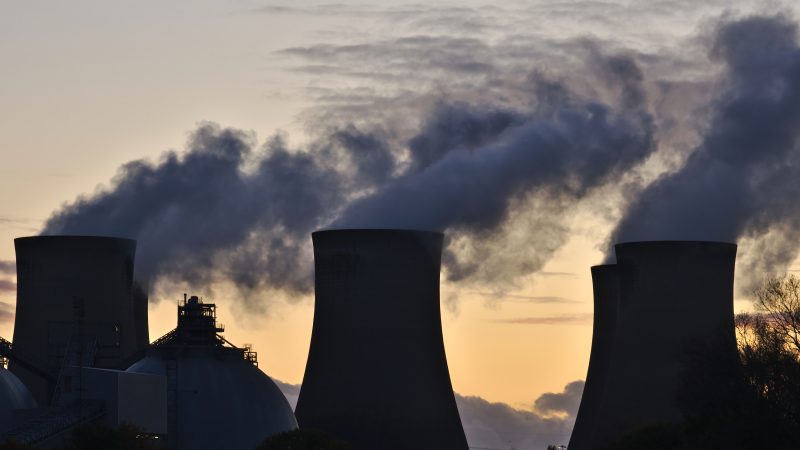
This week marks a significant milestone in the UK’s clean energy transition. On Monday, after some 142 years, the UK will stop using coal to produce electricity. This makes the United Kingdom the first G20 country to successfully remove the dirtiest fossil fuel from our electricity mix.
This is a genuinely impressive achievement. The UK’s closest G20 neighbours, France and Germany, are not due to come off coal until 2027 and 2038 respectively. Getting to this point took significant, ambitious decisions – choices by politicians and policy makers every bit as bold as our new 2030 clean power mission.
In 2009, the then (and now current) Energy Secretary published “The UK Low Carbon Transition plan”, aimed at steering the UK’s energy system to 2020. This moved the UK from a system where three quarters of our electricity came from coal and gas to one where the majority now comes from zero carbon power sources. As of Monday, none will come from coal.
How we got here
Moving this far, this fast did not happen by accident. The last Labour government took hard decisions, including introducing an effective ban on the development of new coal fired power stations. This was particularly difficult for a Labour government to do.
Labour is a party born out of the trade union movement, and has always been the party for working people. Coalfield communities by and large vote resoundingly Labour, a party with a long history of delivering better pay and conditions for the workers.
READ MORE: ‘We have a narrow window to cut emissions – we need a Climate Change Act 2’
But it was undeniably the right decision. Moving away from coal this quickly has greatly sped up our transition to net zero while providing long term certainty about the direction of our energy system.
There have, of course, been mistakes which have held back our move away from coal. The effective banning of onshore wind between 2015 and 2024, as well as insufficient work to insulate Britain’s drafty housing stock, all contributed to the delay of the switch off of coal. But due to clear, early signals the UK has still got to this point years earlier than international partners and competitors.
The original policy decision in 2009, to move away from coal could now be seen as an earlier version of Labour’s current missions. By setting long term objectives, industry, unions and Government were able to make decisions that has moved the UK away from coal at a faster rate than any comparable economy.
A clean power mission
At the time, it was widely assumed that moving away from a cheap supply of energy which could be burnt as and when it was needed, would be unfeasible. But by giving the market clear signals early on, it has been proven possible. Renewable energy has become a reliable source of clean power, and one which is now cheaper than any fossil fuel.
In his speech at Labour conference, Keir Starmer set out how the new government will intervene to shape markets, rather than sit back and hope an invisible hand succeeds in driving change. At a time when international energy markets are volatile and when we urgently need to tackle climate change, this is what government should be doing – providing a long-term plan to properly address the tough challenges we face.
Recap on all of the news and debate from party conference 2024 by LabourList here.
The 2030 clean power mission is set to make the UK the first G20 country to remove fossil fuels from its power system. Over the past week, it has been confirmed that GB Energy will be located in Aberdeen; a clear indication that investment into clean energy will be used to support a just transition in lockstep with the union movement that represents North Sea oil and gas workers.
The manifesto commitment to end new oil and gas projects has the potential demonstrate genuine global leadership, making the UK the first oil and gas producer to align energy policy with the Paris Climate Agreement.
When the 2030 clean power mission was announced, some commentators called it impossible. But this week’s coal switch off is a reminder that we have heard these same arguments before and proven them wrong. Big change takes political courage and long term thinking. But as the achievement of Labour’s original clean energy mission shows, these challenges are not beyond us.
SHARE: If you have anything to share that we should be looking into or publishing about this story – or any other topic involving Labour– contact us (strictly anonymously if you wish) at [email protected].
SUBSCRIBE: Sign up to LabourList’s morning email here for the best briefing on everything Labour, every weekday morning.
DONATE: If you value our work, please donate to become one of our supporters here and help sustain and expand our coverage.
PARTNER: If you or your organisation might be interested in partnering with us on sponsored events or content, email [email protected].




More from LabourList
‘Council Tax shouldn’t punish those who have the least or those we owe the most’
Two-thirds of Labour members say government has made too many policy U-turns, poll reveals
‘Two states, one future: five steps on the path to peace for Israelis and Palestinians’